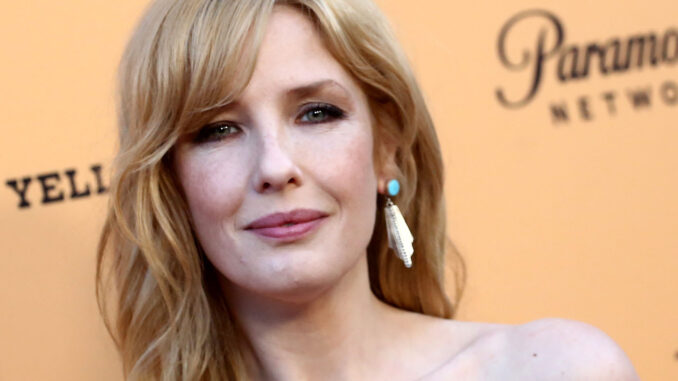
The Roar Returns: Kelly Reilly and the Unapologetic Feminism of Beth Dutton
A chill, a ripple, a low growl of anticipation — that’s the sound of the Yellowstone universe preparing for the return of its most formidable force. Kelly Reilly, with her incandescent portrayal of Beth Dutton, is officially back, and with her comes the unvarnished, defiant, and undeniably strong feminist icon that the world has come to both fear and adore. This isn’t just an actress reprising a role; it’s a phenomenon re-entering its rightful orbit, promising to scorch the earth and rebuild it on her own terms.
From the moment she first stalked across the screen, a hurricane in a designer suit, Beth Dutton shattered every preconceived notion of a female character in a Western drama. She is not a damsel in distress; she is the dragon. She is not the quiet support; she is the shield and the sword. Kelly Reilly imbues Beth with a raw, visceral intensity that makes her both terrifying and profoundly compelling. Every flick of the wrist, every arched eyebrow, every razor-sharp retort carries the weight of a woman who has survived the unthinkable and chosen to wield her trauma as a weapon, not a weakness.
This isn’t feminism in the gentle, conciliatory sense; this is feminism with teeth, claws, and a well-aimed verbal grenade. Beth Dutton’s feminism is an unapologetic manifesto of self-determination. She refuses to be defined by men, even those she loves fiercely like Rip. Her agency is absolute. She is a financial titan in a man’s world, a cerebral assassin who navigates boardrooms with the same ruthless precision she applies to family feuds. She owns her sexuality, her choices, and her past, never once seeking permission or validation from a patriarchal system that would prefer her docile.
Indeed, Beth’s strength is often expressed through her protection of other women in the Yellowstone universe. She defends Monica from racist attacks, offers counsel and fierce loyalty to Teeter, and stands as an unwavering bulwark against any perceived threat to her family, particularly those female members. Her love, though often expressed through a barbed wire fence, is fierce and unwavering. She is the embodiment of a protective matriarch, even without bearing children, proving that womanhood and power are not singularly defined by traditional roles.
The excitement surrounding Reilly’s return isn’t merely about the continuation of a gripping storyline; it’s about the resurgence of this walking, talking paradox. Audiences crave Beth because she gives voice to a complex, often dark, female power that is rarely afforded such a prominent, visceral platform. She is messy, she is flawed, she makes questionable choices, but she is never, ever a victim. She is a woman who, despite immense personal suffering, has built battlements of her own making, protecting her heart with a ferocity that belies her fragile interior.
As the dust settles and the cameras prepare to roll again, the promise of Beth Dutton’s return signals more than just dramatic television. It’s a reaffirmation that characters like her are not just welcome but necessary. Kelly Reilly doesn’t just play Beth; she channels a gale-force wind of feminine strength that challenges, provokes, and ultimately inspires. Strong feminist Beth Dutton is officially back, and the Yellowstone universe will never be the same. Prepare for the roar.
